END OF RESIDENCY WEBZINE
ABOUT
RESIDENTS
SEMINARS
TRACES
PHOTOS
In 2020 more than 40 international participants took part in the UNIDEE residency programme exploring ‘what’s next?’ for embedded arts practice in a post-pandemic future.
The 2021 program aimed to further and deepen this conversation with a specific focus on alternative structures, frameworks, ecologies and organisational forms for socially engaged art projects, and the groundwork required to build and sustain them.
Over ten weeks from May to July 2021, the residency provided a forum for practitioners from a range of backgrounds to gain new perspective and develop their practice through a programme of peer-to-peer learning.
Seminars
A weekly programme of seminars and guest presentations helped frame and reflect the residents' action research.
Invited guests included economic geographer and co-author of Take Back the Economy: An Ethical Guide for Transforming Our Communities Professor Katherine Gibson (Australia); artist Jeanne van Heeswijk (the Netherlands); community economies platform The Interdependence (artists Kathrin Böhm, Kate Rich, Bianca Elzenbaumer) with researcher and curator Aria Spinelli; Decentralising Political Economies(presented by researcher/curator Alessandra Saviotti and artist Owen Griffiths); artist, academic and curator of the feminist DIY virtual collective Ladyz in Noyz Marlo De Lara (USA); nomadic postcapitalist think-tank Institute of Radical Imagination (represented by artists and academics Massimiliano Mollona, Marco Baravalle and Emanuele Braga), Mexico City-based collective Cráter Invertido (Mexico), Wharf Chambers Co-operative Club (UK) – a worker’s co-op run cultural venue in Leeds; Pyramid, a collective of around 150 artists with and without learning disabilities and artist-facilitator, museum professional and academic Jade French (UK); and artist, activist, and author of Art as Social Action and Dark Matter Gregory Sholette (USA).
The programme also included workshops and discussions with Beirut-based comic collective Samandal, and organisations in Cittadellarte and Biella including Let.Eat.Bi, Art of Demopraxy, Hydro, Learning Environments and PACE Futuro.
We began with some questions generated in the 2020 residency and Andy Abbott's curatorial statement:
How can we create sustainability, for ourselves and our worlds?
What new ecologies of practice exist or can be formed?
In which spaces and places can this grow, and what are the ideal conditions?
What groundwork is required, and how do we get started here and now?
Residents' Action Research
Residents explored these questions through their own ongoing situated (artistic) action research. They shared their progress through an online virtual studio space, and through a programme of group critiques and (self organised) workshops and activities. The cohort included:
Marco Antelmi (IT); CONJUNCTION public art curatorial collective (EU/North America); Sue Jeong Ka (USA/KR); Abed Alrhman Shabaneh (PS); Evy Jokhova (UK/RU/ES); Josie Tothill (UK); Jamie Allen (CAN/DE); Suzannah Henty (AUS); Miguel Amado (PT/IE); Kristina Borg (MT); PLoT collective (UK/IE); Rachel Marsden (DE); Louise Carver (UK/DE); Alhassan Issah (GH); Sophie Minervini (UK); Maria Kuzmina (RU); LUMIN (UK); Krisztián Gábor Török (HU); Alicja Wysocka (PL); Ahmed Mongey (EGY); Diego Gutierrez Valladares (CR/PL); Chiara Sgaramella (IT/ES); Chiara De Maria (IT); Lígia Fernandes (PT); Mae Aguinaldo-Mapa (PH); Lauren Hollowday (UK); Lodovica Guarnieri (IT/UK); Johanna Klingler (DE); Lexie Owen (CAN/NO); Kaushal Sapre (IN); Ella Appleton (UK); Paria Goodarzi and Francisco Llinas (IR/VE/UK); Gilson Schwartz (BR); Ekarasa Doblanovic (IT/HR/NZ); Studio LOKA (CO/FR).
One-week intensives, Traces and Handovers
As part of the programme residents undertook a one-week intensive in small groups. They could participate at Cittadellarte or remotely. At the end of the one-week intensive the residents were asked to leave a trace of their experience for the next group to read. This also formed a growing installation in the UNIDEE Project Space corridor.
Towards the end of the residency some of the common concerns, practices and methodologies within the cohort included:
- digital spaces, tools and play
- sustainable food production/growing and botanical knowledge
- institutional reform/critique
- self organisation and creation of counter/alter institutions
- building the commons as resistance to gentrification
- artist as policy maker and organiser of new forums
- alternative approaches to pedagogy/education
- collective, co-produced and participatory artistic methods

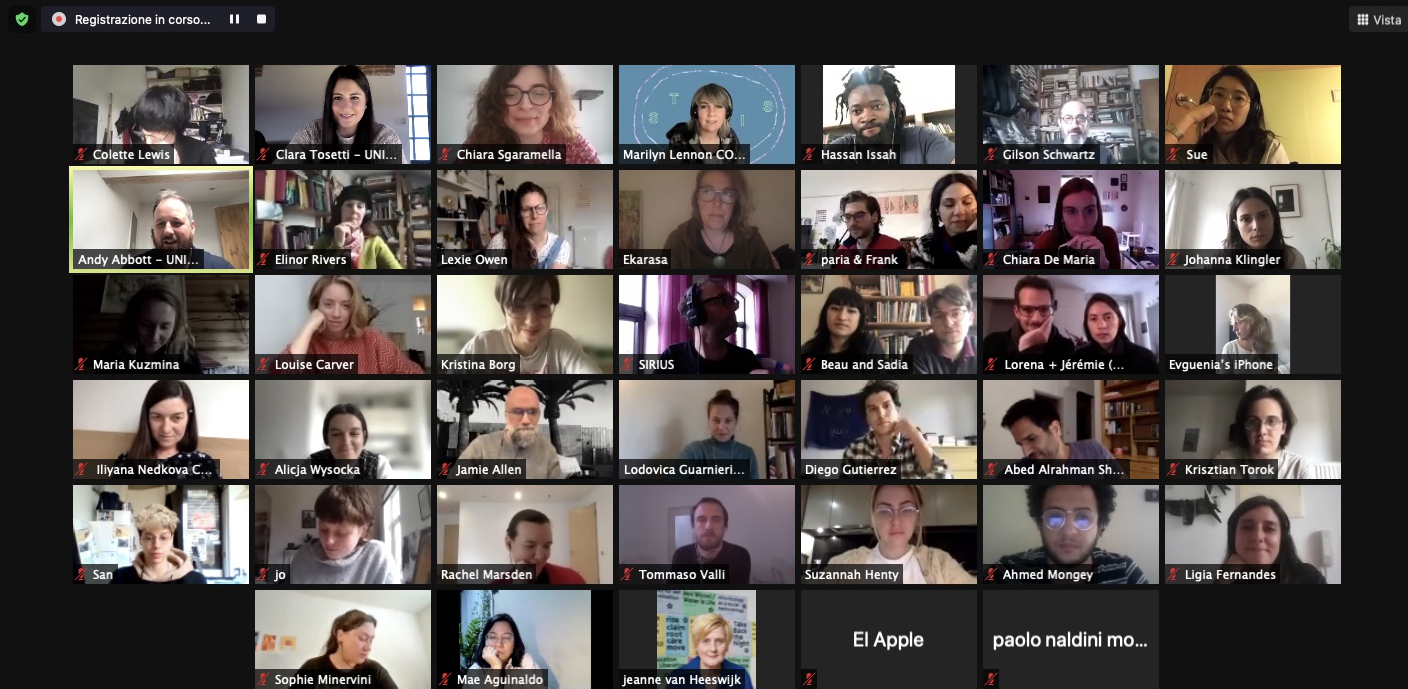
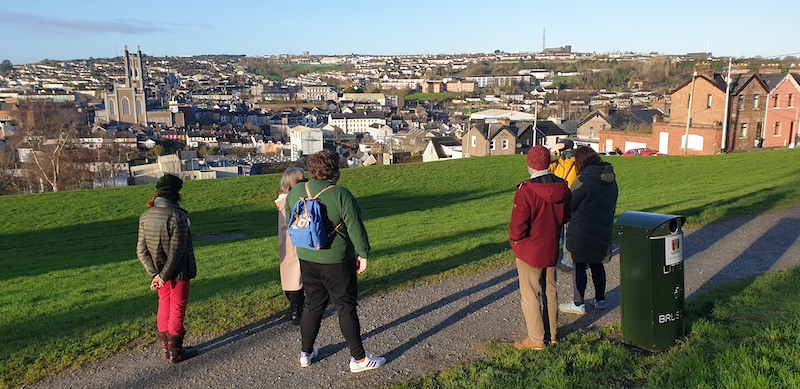
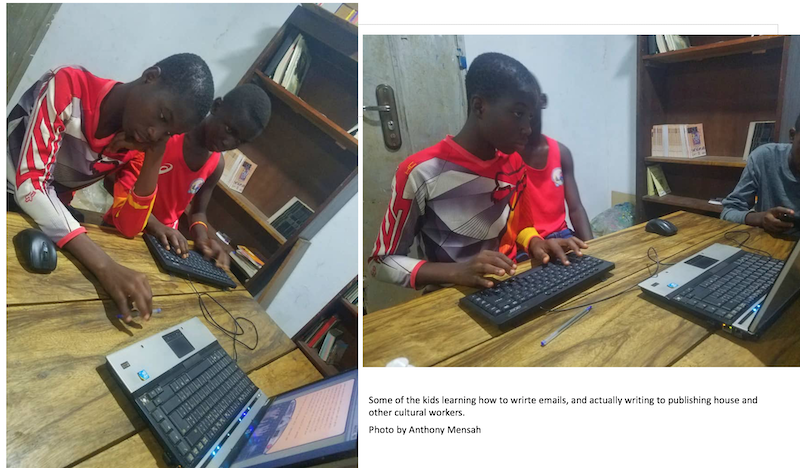
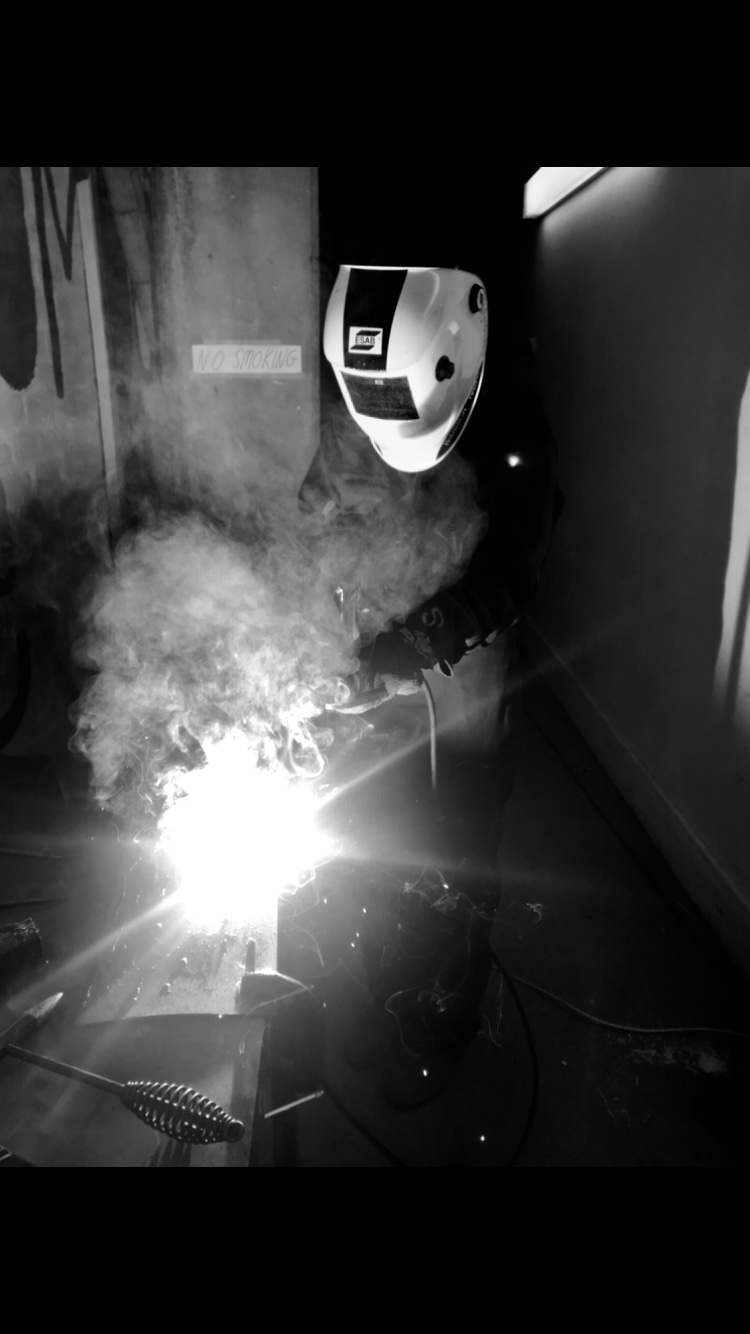
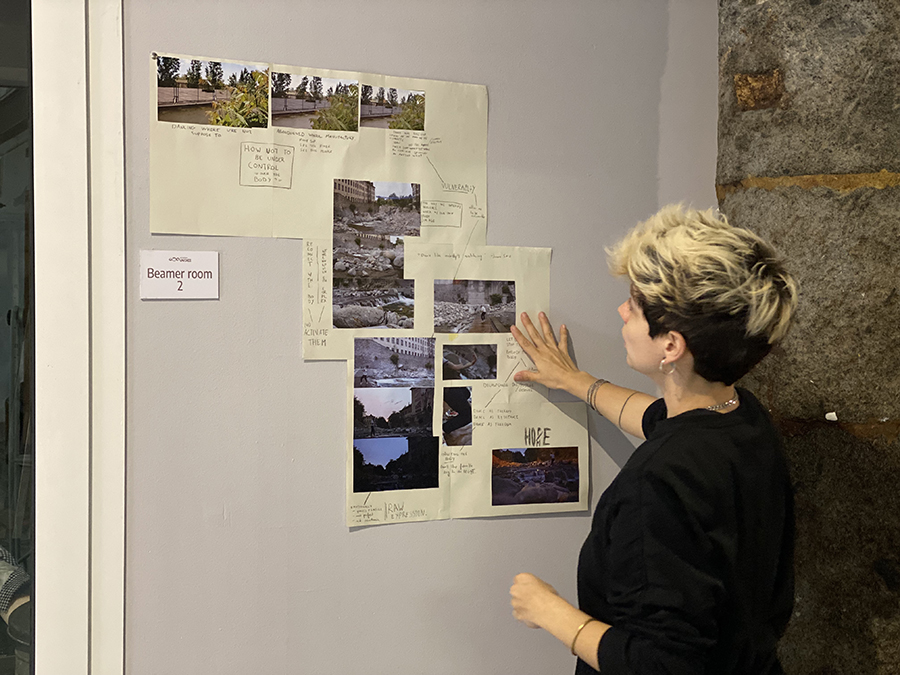
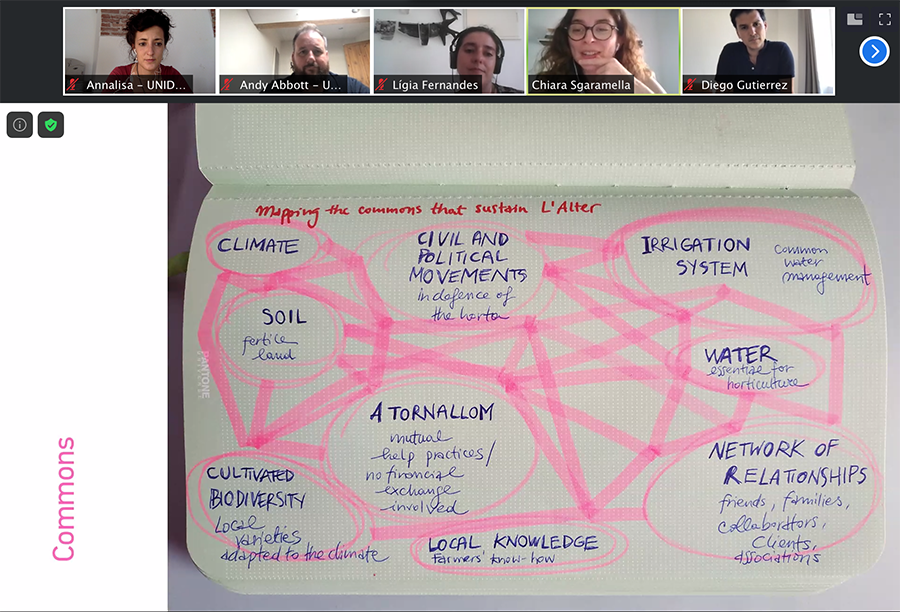
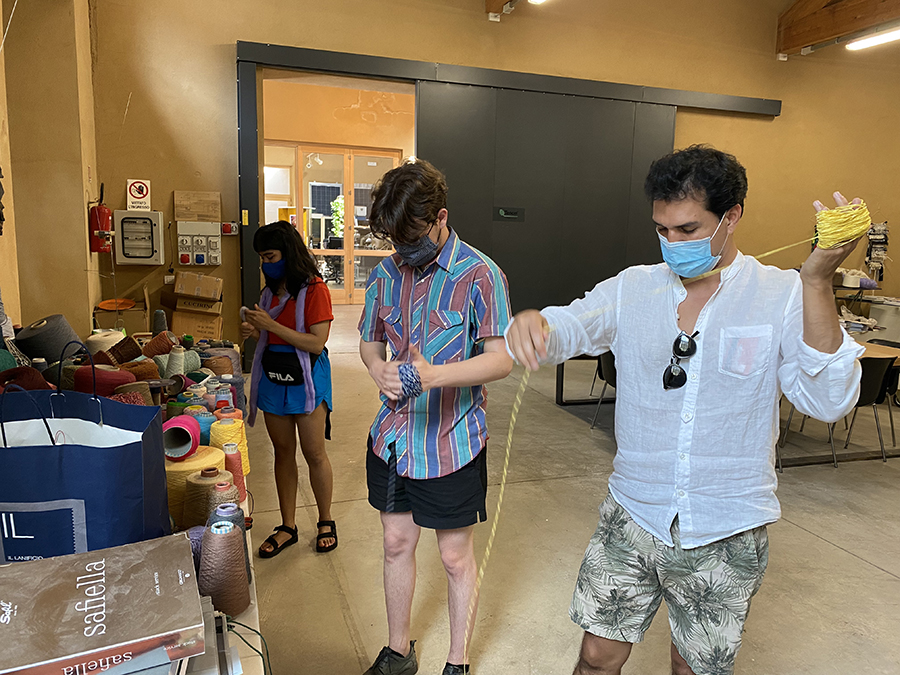
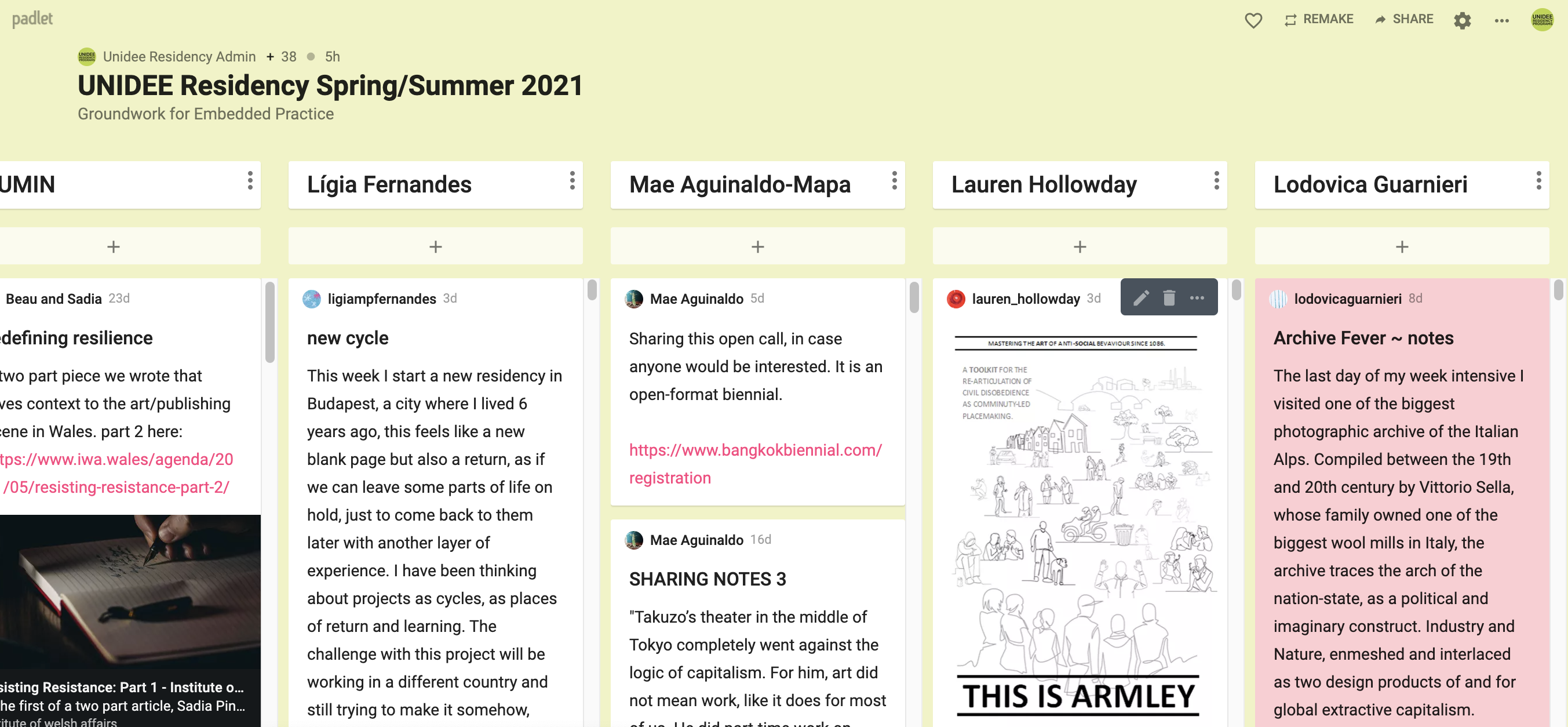
Questions and themes to take forward included:
- How can sharing our embedded practices strengthen trans-local, and trans-temporal, solidarity?
- What productive tensions exist between the formal and the informal, the structured and organic, and the institutional and self-organised?
- Are we part of the problem? Can we avoid extractive dynamics in socially engaged art? How can we work within, against (and beyond) existing structures?
- When to let go? What is the shelf life of a project, collective or organisation? What would it mean to ‘disappear’ or merge into the social fabric?
- How can we harness ‘negative’ emotions of anger, guilt, and sadness as energy for action research in our locale?
- How might we work across different scales and spaces of embeddedness: from the individual, the social, and the environmental/structural?
- How can we create intimate and embodied connections in digital spaces? What new possibilities might emergent technologies afford for embedded practice?
- What role does collective imagination, subjectivity and love have in ‘useful art’ projects?
- From what conditions might new forms of knowledge emerge: how do we foster, recognise and validate these?
- How do we build in the need for slowing down, reflection, self-care and being ‘non-productive’ in embedded artistic action research?